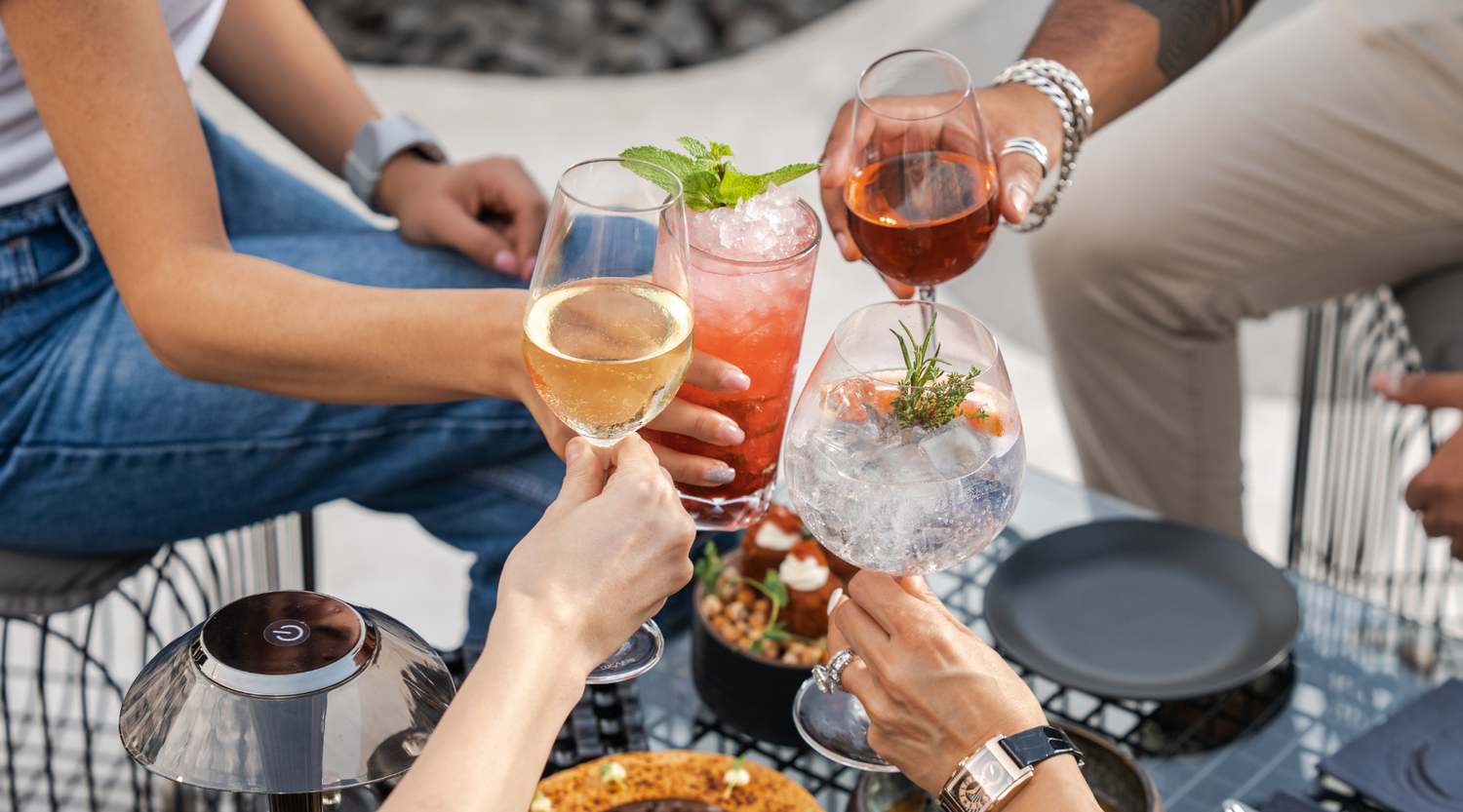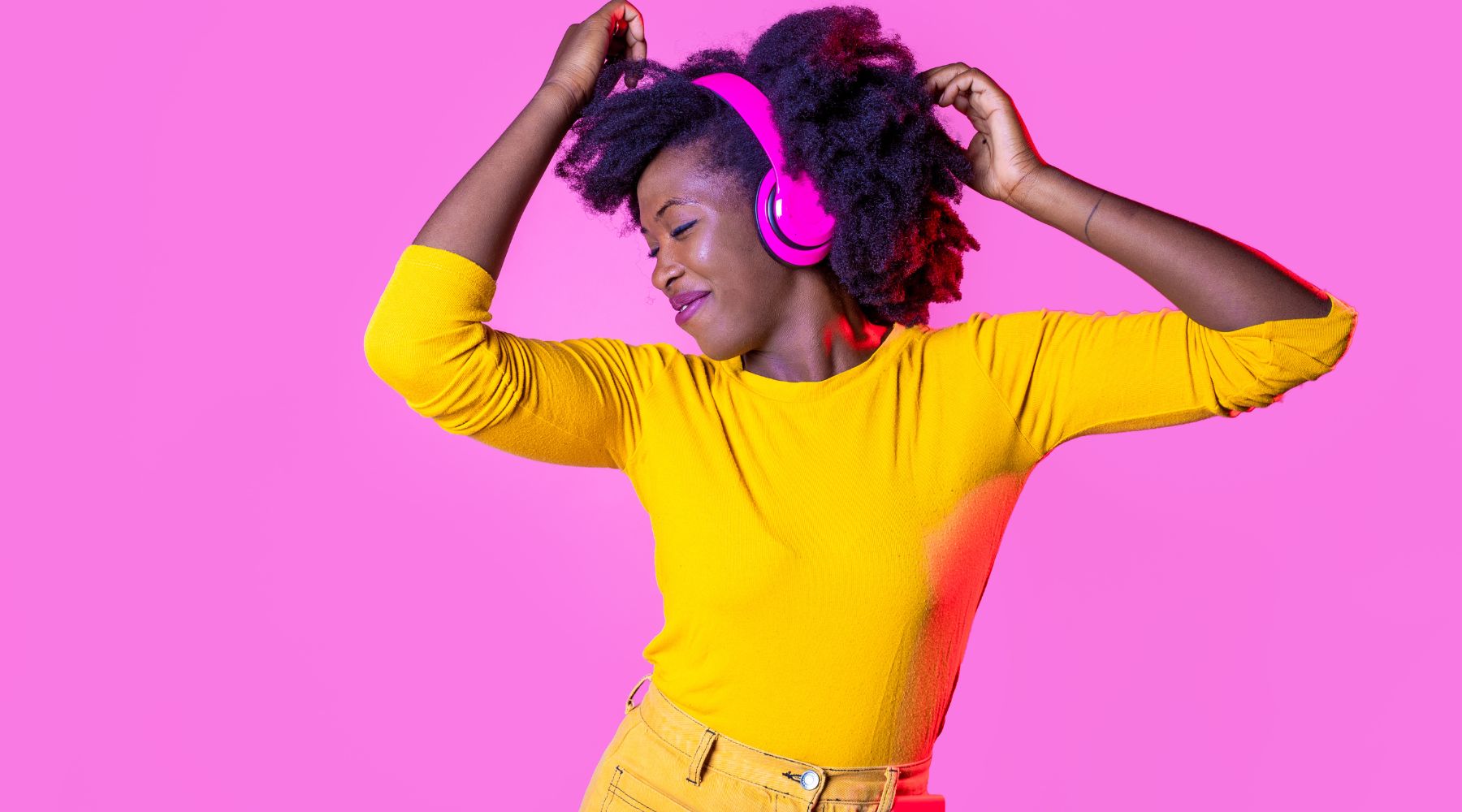Whether it’s enjoying a glass of rosé at Wimbledon, sipping a refreshing lager at a Camp Bestival, or having a chilled cider while watching the football, UK culture means that alcohol goes hand in hand with many summer activities and before you know it, your consumption is topping out weekly, if not creeping into the week (especially with those tempting post-work drinks on summery, balmy evenings!)
But what is the real impact of alcohol on our brain? Does it really only matter if you are binge-drinking or drinking every day? And when it comes to our noggin, is there a 'safe' amount - or should we be assessing our relationship with alcohol once and for all?
Under the influence - what happens when we drink to our brain?
For many of us, we drink to be sociable and relax. Although drinking habits change through generations, most people who like to drink alcohol do so in moderation, with a couple of evenings a week where they enjoy a glass of wine to unwind, or a few pints in the pub with friends.
When we consume alcohol, we know that the effect on our brain is immediate because we feel it. But what is really going on in our noggin as we sip away? Well, alcohol is a central nervous system depressant, and that means it slows down our brain function and neural activity. This can lead to a range of effects, from mild euphoria and reduced inhibitions to ultimately impaired judgment and coordination.
For many, this initial buzz is part of the appeal of drinking. However, it's crucial to recognise that these effects are a result of alcohol interfering with the brain's communication pathways.
The hippocampus hiccup?
One of the first areas of the brain affected by alcohol is the cerebral cortex, which governs our senses and thought processes. This interference can make us feel more relaxed and sociable, but it also diminishes our ability to think clearly and make good decisions.
At higher levels of consumption, alcohol can impact the hippocampus, crucial for memory formation, leading to blackouts or memory lapses. The cerebellum, responsible for balance and coordination, is also affected, which explains why people often lose their balance after a few drinks - that old 'stumble and fumble' that many of us will be familiar with after a 'good night out'.
The long-term impact of booze on the brain
While the short-term effects of alcohol on the brain might seem temporary and harmless, the long-term consequences can be far more serious. Chronic alcohol consumption can lead to significant and lasting changes in the brain. Studies have shown that prolonged heavy drinking can cause shrinkage of brain tissue, particularly in areas responsible for memory and cognitive function.
One of the most severe long-term effects of chronic alcohol use is the development of alcohol-related brain damage (ARBD), which includes a range of conditions such as Wernicke-Korsakoff Syndrome. This condition is caused by a deficiency of thiamine (vitamin B1), often linked to heavy drinking, and can result in severe memory problems and cognitive decline.
Moreover, current research indicates a strong link between heavy drinking and an increased risk of developing neurodegenerative diseases such as Alzheimer’s and other forms of dementia. Alcohol can also exacerbate the progression of these conditions, accelerating cognitive decline and making symptoms more severe, so it's important to moderate or stop drinking altogether if you suspect that you, or a loved one, is experiencing symptoms of dementia.
Can alcohol affect your mental health?
How can alcohol affect our mental health? For some people who experience stress and anxiety - especially social anxiety - alcohol can seem like a good idea to relax and feel more confident as it can initially seem like a mood booster. However, as we get older, or drink more, alcohol can have a profound impact on our mental health and worsen issues such as depression and anxiety. This is partly due to alcohol’s effect on neurotransmitters in the brain, disrupting the balance of chemicals that regulate mood.
That's not all. Alcohol can create a vicious cycle where individuals drink to cope with their mental health issues, only to find that their symptoms worsen, the more they drink. This can lead to increased dependency and further deterioration of both mental and physical health and can be a tough cycle to break.
Does our tolerance of alcohol change as we age?
For many women, we find that as we age - especially through menopause - our tolerance of alcohol lessens, we can't drink the same things we used to and we may even find we are experiencing hot flashes or get hives when drinking alcoholic drinks.
This is partly due to hormonal changes that affect metabolism and liver function, which can make it harder for the body to process alcohol. Alcohol can also increase cortisol and inflammation. And when it comes to our brain, alcohol can increase anxiety and mood swings, both of which are already common during menopause due to fluctuating hormone levels. The combination of alcohol and hormonal changes can create a perfect storm, significantly impacting mental health and overall well-being. For many of us it's during menopause that we decide to stop drinking altogether.
How can you cut down for your noggin?
If you are thinking about cutting down for your whole health, here are some tips to keep in mind:
- Set Limits: Decide in advance how many drinks you will have and stick to it. This helps prevent overindulgence.
- Stay Hydrated: Drink plenty of water, especially if you’re outside in the heat. Alternating alcoholic drinks with water can help you stay hydrated and reduce your overall alcohol intake.
- Eat Well: Consuming food before and while drinking slows the absorption of alcohol and can help mitigate its effects.
- Know Your Strengths: Be aware of the alcohol content in your drinks. Opt for lower-alcohol beverages when possible and mix things up with mocktails too.
- Take Breaks: Give your body a chance to process the alcohol by spacing out the times you will drink, and make plans in advance so that if there is a couple of events close together, you can plan alternative drinks such as alcohol-free and low alcohol options.









